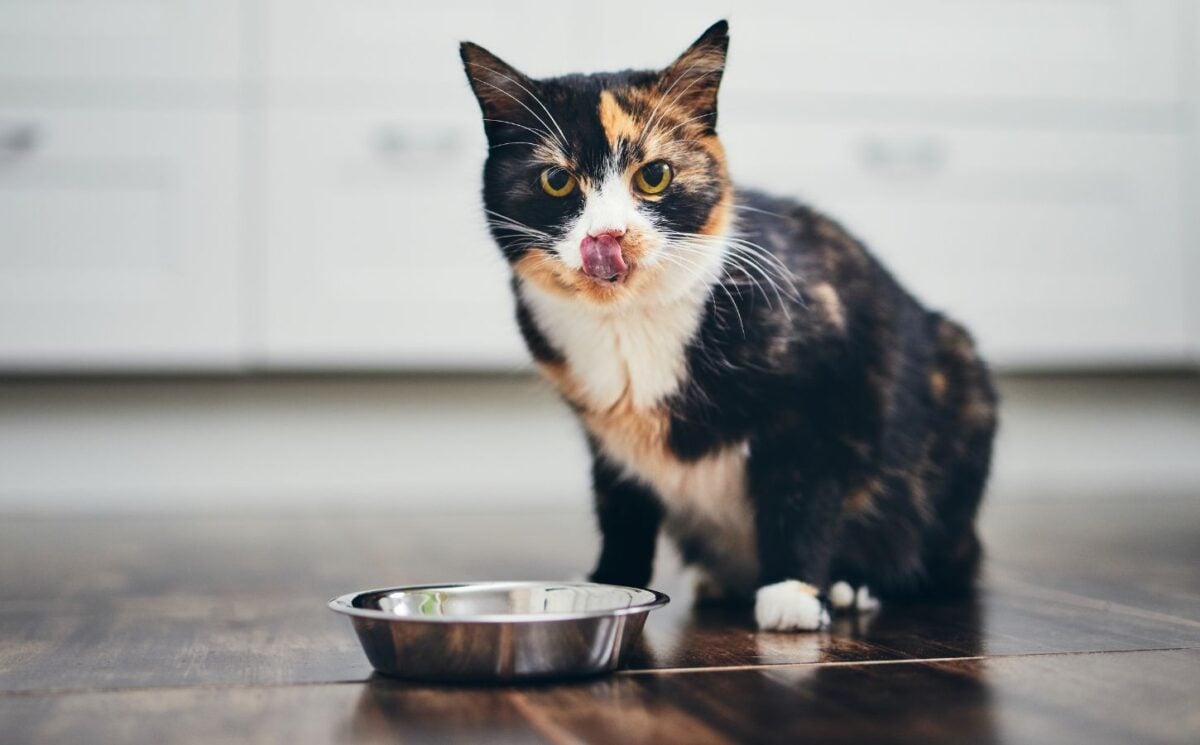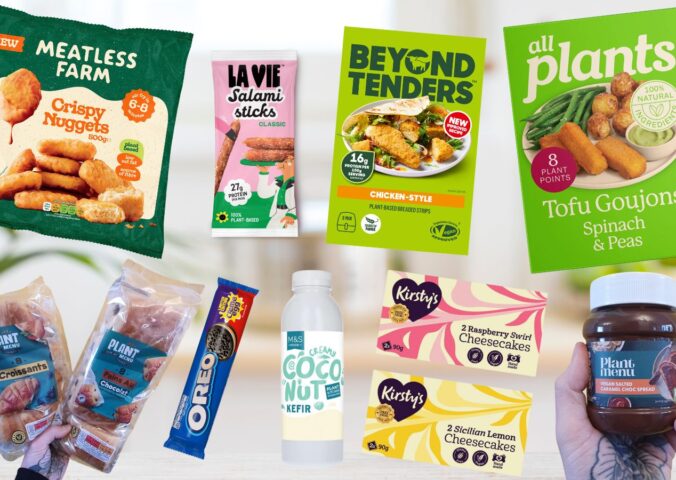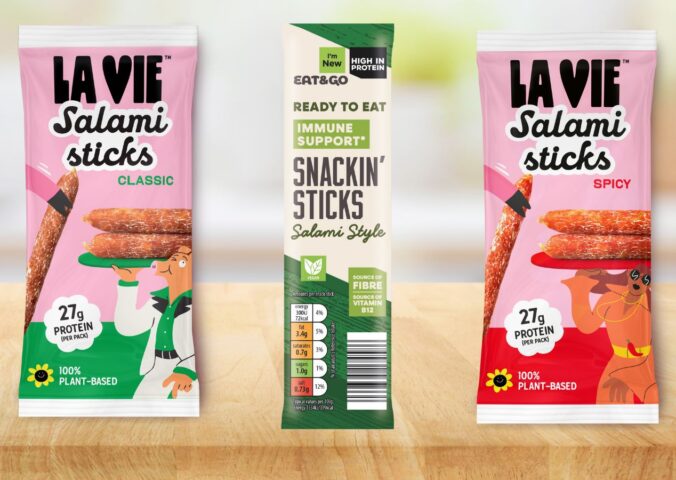Cats tend to be healthier on a plant-based diet than an animal-based diet, according to new research.
The study, published in PLOS One, surveyed the guardians of 1,369 cats, 1,178 of whom were fed conventional meat-based diets, 64 raw meat diets, and 127 vegan diets. Across seven general indicators of illness including frequency of vet visits, medications taken, and progression onto specialised prescription (“therapeutic”) diets, the vegan cats tended to fare better.
Of 22 specific health disorders, 15 were most common in cats fed meat, while seven were more common in vegan cats. The researchers, from the UK and Germany, controlled for differences between vegan and non-vegan cats in age, sex, whether they were neutered, and whether they were primarily indoor or outdoor cats. Most of the findings were not statistically significant, but authors did state there was a trend that plant-based cats were often healthier.
“Considering these results overall, cats fed plant-based diets tended to be healthier than cats fed meat-based diets. This trend was clear and consistent. These results largely concur with previous, similar studies,” notes the study abstract.
The cats had been on their diet for at least a year. Forty-one percent of the whole group were given daily treats that typically contained meat, so some of the cats on plant-based diets were also consuming at least small amounts of animal products. Thirteen percent also received dietary supplements such as for joint health, amino acids, and vitamins.
The study is thought to be the largest to date to compare the health outcomes of cats on vegan diets with those on animal-based diets.
Can cats really be vegan?
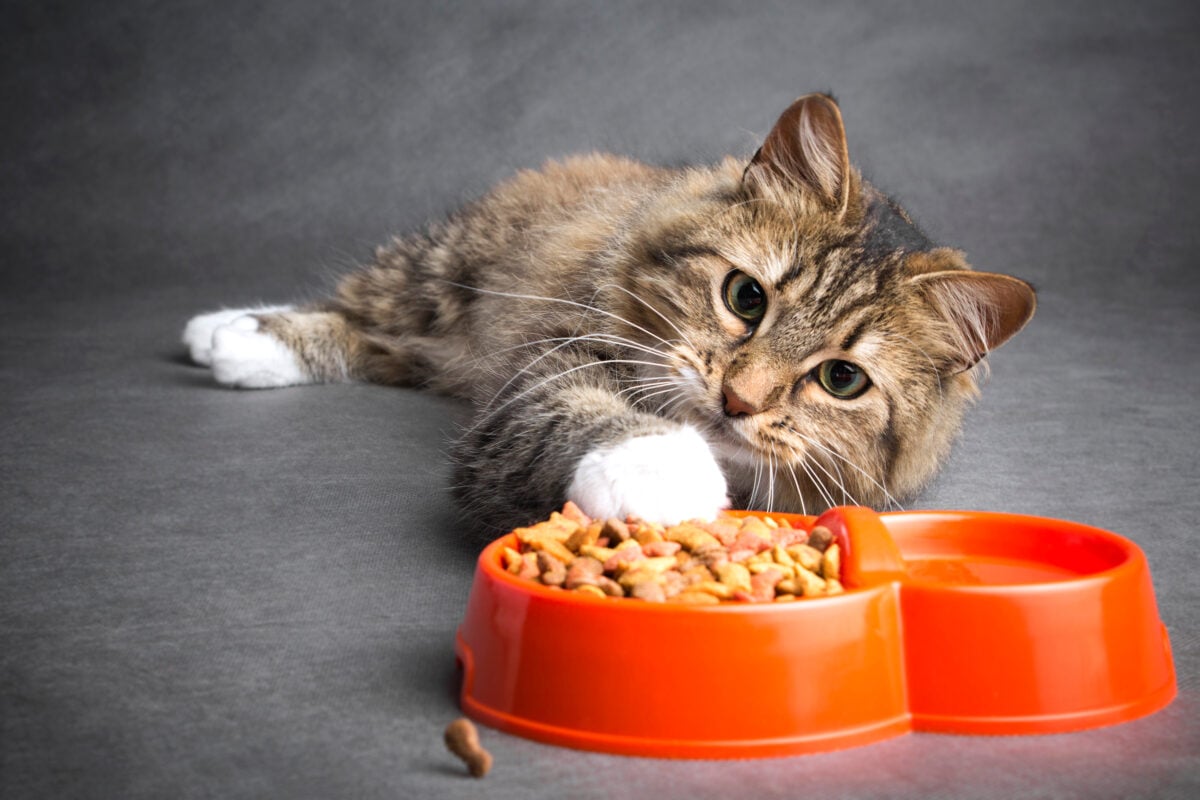
As omnivores, dogs are able to thrive on plant-based diets, as several studies have shown. But concerns remain about feeding such a diet to cats, who are carnivorous. The British Veterinary Association does not recommend vegan or vegetarian diets for cats. This is based on lack of evidence for the bioavailability of plant-based proteins for cats. It also recommends speaking to your vet before changing your cat’s diet.
Professor Andrew Knight, founding director of the University of Winchester’s Centre for Animal Welfare, is the lead author of the new PLOS One study. He told Plant Based News: “There is no evidence I’m aware of showing significantly inferior digestibility of vegan pet foods. In fact, recent studies have demonstrated good digestibility of such diets.”
He points to one that found cats were actually more able than dogs to digest plant proteins. The authors of that study are or had been employees of Hill’s Pet Nutrition, which makes animal-based food for dogs and cats with health conditions.
Other studies have also found more favourable outcomes for cats on plant-based diets. A 2021 study from Canada found that of 1026 cats, fewer of the 187 who were fed plant-based diets were reported to have gastrointestinal and hepatic (liver) disorders. Guardians also perceived them to have more ideal body condition scores than cats fed a meat-based diet.
Another study from 2006 found that both guardians of vegetarian and carnivorous cats reported their animals to be generally healthy. “Almost no contrary evidence exists” that disproves these studies, says Knight.
Deficiencies in conventional diets
Knight and his co-authors found that health and nutrition was the most important factor for guardians in decision-making about their cat’s diet. Suspicion about the nutritional quality of conventional, commercial pet food is pushing guardians towards embracing alternatives.
There is no end of websites focused on the well-being of companion animals that decry the unhealthiness of ingredients used in many commercial brands. Meat industry offcuts like connective tissue and offal, artificial preservatives, and grains are among the ingredients that cause concern. Recalls of pet food also help to drive people to turn to what they consider more “natural” diets for their animals.
In Knight’s view, plant-based foods can avoid some of the health pitfalls of conventional pet food while providing the right nutrition. Cats need nutrients like taurine, which aren’t found in plant foods. But these, he said, can be supplemented and added to vegan cat food.
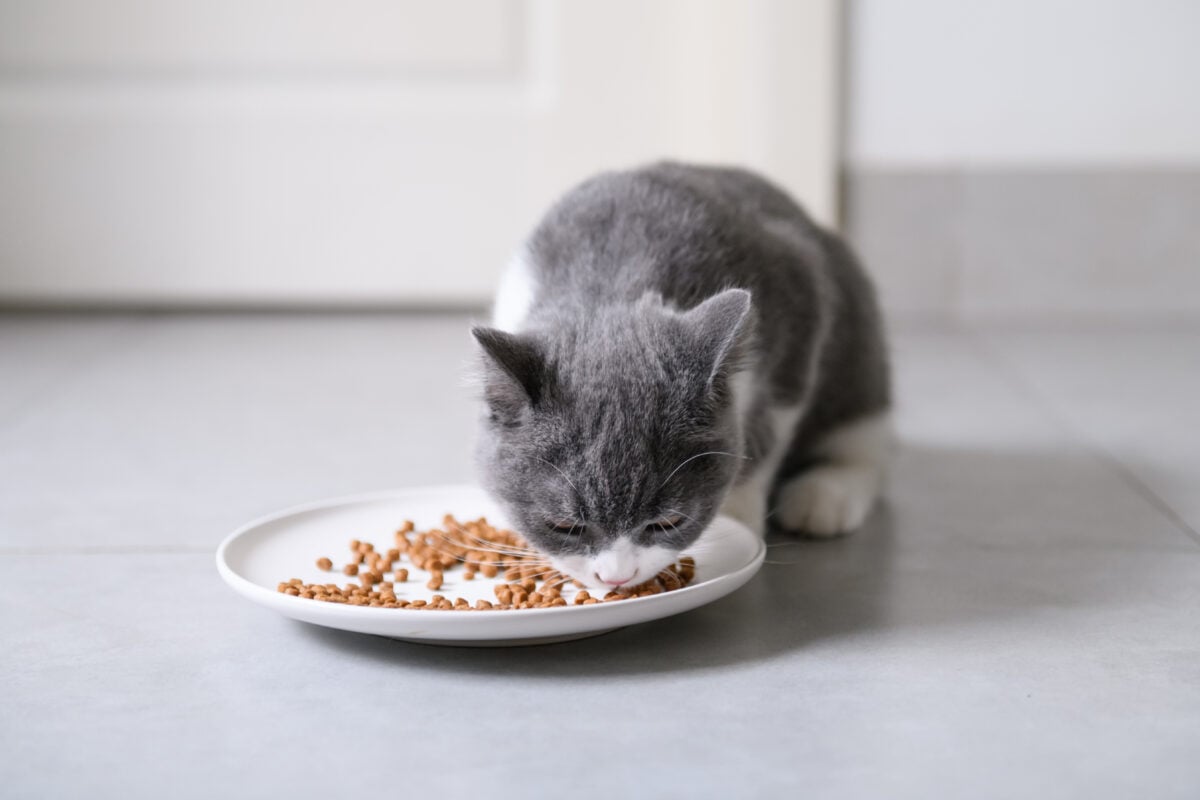
“It stands to reason that if you formulate a diet to include all necessary nutrients, but fewer of the dietary hazards common to meat-based pet foods (animal-sourced allergens being an obvious example), health outcomes are likely to be equivalent or superior, and that’s exactly what the studies are showing us,” he said.
Plant-based diets are one alternative that guardians are turning to; raw meat diets are another. The latter appeals to people who believe they are feeding their companions a diet that more closely resembles that of their wild relatives or ancestors. But there is limited evidence for the health benefits of raw meat diets, and there are a number of health concerns associated with these diets. These include increased likelihood of bacterial infections, malnutrition, and parasites.
More ethical diets
Health may be the main motivator for guardians to turn to plant-based diets for their companion animals, but the ethical and environmental benefits are also of growing interest.
In the UK, there are nearly 25 million “pet” cats and dogs, while globally there is an estimated 844 million. The US and Europe account for around two-thirds of global spending on food for dogs and cats. Most of these animals are fed conventional animal-based diets that have a significant environmental impact.
Pet food production in the US accounts for between 25 and 30 percent the emissions from animal products consumed by Americans. The amount of agricultural land used annually to make dry food for cats and dogs, which makes up 95 percent of pet food sales, is around 49 million hectares – roughly twice the size of the UK.
Many commercial pet foods will also use animal ingredients sourced from factory farms. The immense suffering caused to animals in such farming systems is considered a serious ethical problem, particularly for guardians who are vegan themselves.
But some people would argue that it is unethical to feed cats or dogs a diet they would not choose for themselves.
Knight has conducted another study to test whether cats do in fact prefer meat-based diets. It looked at 15 indicators of how much cats on vegan and meat-based diets enjoyed their meals, using scientific evidence of behavioural signs that cats did find something tasty. After detailed statistical analysis of the cats’ behaviour, the study found no significant differences overall, indicating that, on average, vegan cats enjoy their meals just as much as those consuming meat.
“This stands to reason,” says Knight. “[A]ny company producing vegan pet food that was not enjoyed by cats, would very rapidly go out of business.”
